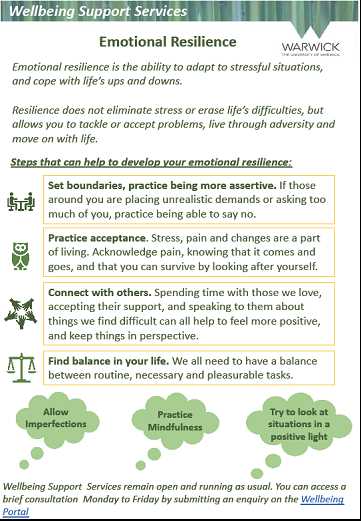
Stress is a common experience that affects individuals both emotionally and physically. It can be defined as the body’s response to pressure or a demand placed upon it. The pressure can come from various sources, such as work, relationships, or financial difficulties. When individuals are exposed to prolonged or intense stress, it can have negative effects on their mental and physical health.
Resilience, on the other hand, refers to an individual’s ability to adapt and bounce back from stressful situations. It is the capacity to recover quickly from difficulties and setbacks. Resilient individuals are able to maintain their mental well-being and cope effectively with stressors. They possess the necessary skills and resources to navigate through life’s challenges.
Understanding the definitions of stress and resilience is crucial in order to comprehend their implications. Stress can lead to a wide range of mental health issues, such as anxiety and depression. It can also have physical manifestations, such as headaches and stomachaches. On the other hand, resilience has been linked to better overall mental health, increased life satisfaction, and improved coping mechanisms.
Coping mechanisms play a significant role in managing stress and building resilience. They are the strategies and techniques that individuals use to deal with stressful situations. Coping mechanisms can be both healthy and unhealthy, depending on the individual. Healthy coping mechanisms, such as exercise, meditation, and seeking social support, can help individuals manage stress and build resilience. Unhealthy coping mechanisms, such as substance abuse or avoidance, can have detrimental effects on mental and physical well-being.
Section 1: Defining Stress
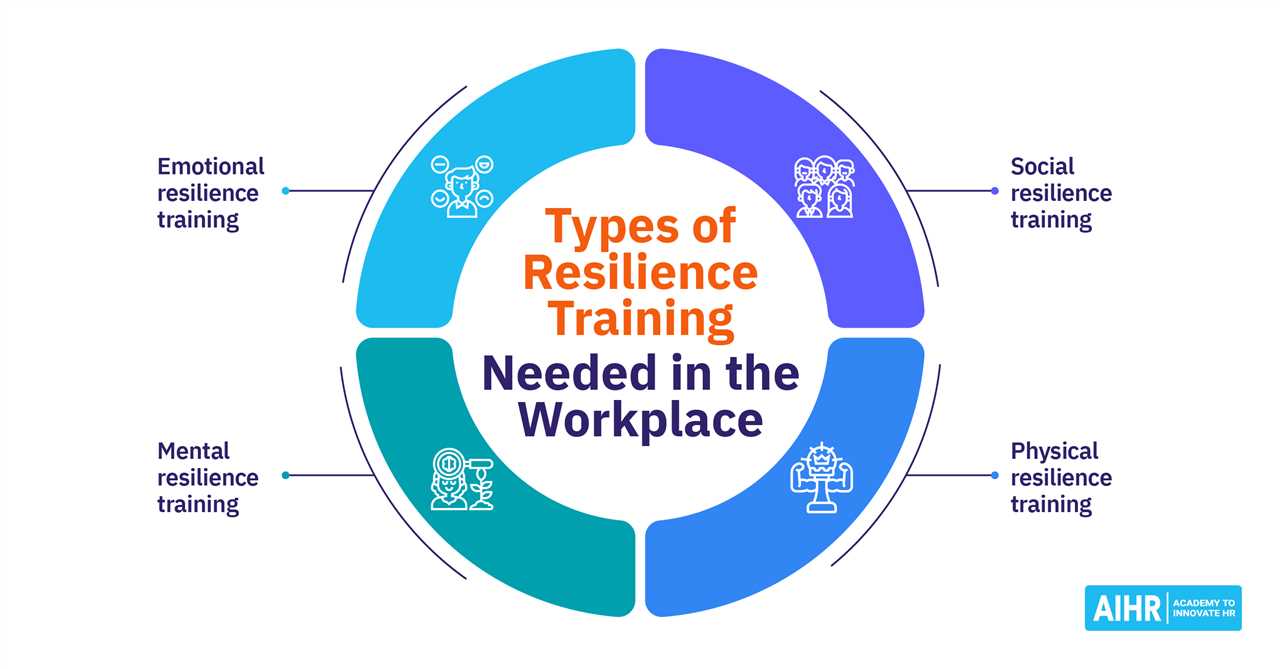
In today’s fast-paced world, stress has become a common phenomenon that affects individuals both mentally and physically. It is important to understand the definitions and implications of stress in order to effectively manage and build resilience against it.
Stress can be defined as a state of mental or emotional strain or tension resulting from demanding circumstances. It is a natural response to pressure and can manifest in various ways, such as physical discomfort, emotional distress, or cognitive overload.
When faced with stress, individuals may experience a range of symptoms, including increased heart rate, muscle tension, irritability, and difficulty concentrating. These physical and emotional responses are the body’s way of adapting to the perceived threat or challenge.
Resilience, on the other hand, refers to the ability to bounce back from adversity and adapt to new situations. It is the capacity to withstand and recover from stress, maintaining a sense of well-being and functioning effectively. Building resilience is crucial in managing stress and promoting overall mental and physical health.
It is important to note that not all stress is negative. In fact, a certain level of stress can be beneficial as it motivates individuals to perform at their best and overcome challenges. However, chronic or excessive stress can have detrimental effects on both mental and physical health.
| Key Definitions: | Implications: |
|---|---|
| Stress | Can lead to mental and physical strain |
| Resilience | Allows individuals to bounce back from adversity |
| Pressure | Can be a source of stress but also motivation |
In conclusion, stress is a natural response to pressure and demanding circumstances that can have both mental and physical implications. Building resilience is essential in managing stress and adapting to new situations. Understanding the definitions and implications of stress can help individuals develop effective coping mechanisms and promote overall well-being.
The Nature of Stress
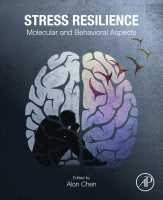
Stress is a natural response to the pressures and demands of life. It can be physical, mental, or emotional in nature, and is often a result of the body’s coping mechanisms being overwhelmed. When faced with stress, individuals may experience a variety of symptoms, including increased heart rate, difficulty concentrating, and changes in mood.
Stress can be caused by a variety of factors, such as work deadlines, relationship issues, or financial difficulties. It can also be a result of major life events, such as the loss of a loved one or a significant change in one’s circumstances. Regardless of the cause, stress is a normal part of life and can have both positive and negative effects on individuals.
One key aspect of stress is its impact on adaptability and resilience. While stress can be overwhelming and detrimental to one’s well-being, it can also be a catalyst for growth and development. The ability to cope with stress and adapt to challenging situations is an essential skill for building resilience.
Resilience refers to an individual’s ability to bounce back from adversity and recover quickly from stressful situations. It is a combination of mental, emotional, and physical factors that contribute to one’s ability to withstand and overcome stress. Developing resilience is an ongoing process that requires self-awareness, self-care, and the cultivation of healthy coping mechanisms.
Understanding the nature of stress and its impact on individuals is crucial for promoting well-being and resilience. By recognizing the signs and symptoms of stress, individuals can take proactive steps to manage and reduce its impact on their lives. This can include practicing stress-reducing techniques, seeking support from others, and making healthy lifestyle choices.
Causes of Stress
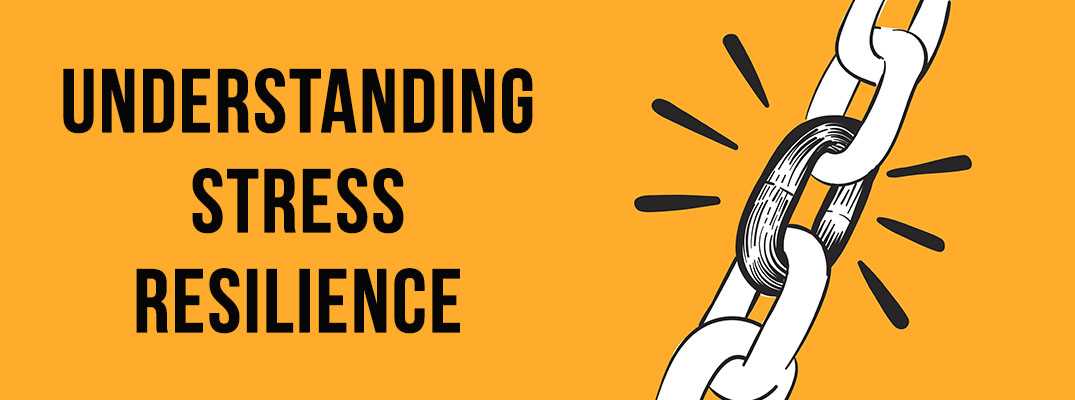
Stress is a natural response to the demands and pressures of life. It can be caused by various factors, both internal and external. Understanding the causes of stress is essential for developing resilience and effective coping strategies.
One major cause of stress is emotional pressure. This can include dealing with difficult relationships, experiencing loss or grief, or feeling overwhelmed by responsibilities. Emotional stress can have a significant impact on mental well-being and can be challenging to manage.
Another common cause of stress is the demands of work or school. Deadlines, high expectations, and a heavy workload can all contribute to feelings of stress and overwhelm. The pressure to perform well and meet expectations can be overwhelming and can lead to burnout if not properly managed.
Life transitions and changes can also be a source of stress. Whether it’s starting a new job, moving to a new city, or going through a major life event like marriage or having a child, these changes can disrupt routines and create uncertainty, leading to increased stress levels.
Environmental factors can also contribute to stress. Living in a noisy or polluted area, dealing with financial difficulties, or facing natural disasters can all create additional stressors in a person’s life. These external pressures can be challenging to control and can have a significant impact on mental well-being.
It’s important to note that stress is not always negative. In fact, a certain level of stress can be beneficial and promote growth and adaptability. However, when stress becomes chronic or overwhelming, it can negatively impact physical and mental health.
Developing resilience and effective coping mechanisms is crucial for managing stress. This can include practicing relaxation techniques, seeking support from loved ones, setting boundaries, and prioritizing self-care. Building resilience allows individuals to bounce back from stressful situations and adapt to new challenges with greater ease.
| Causes of Stress |
|---|
| Emotional pressure |
| Demands of work or school |
| Life transitions and changes |
| Environmental factors |
Effects of Stress on the Body and Mind
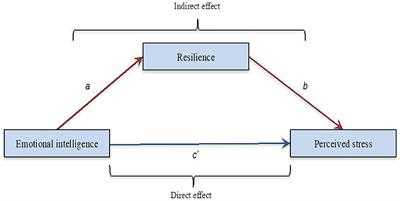
Stress can have a profound impact on both the physical and mental well-being of an individual. The pressure and demands of everyday life can take a toll on the body, leading to a range of physical symptoms and health problems. At the same time, stress can also affect one’s emotional and mental state, causing feelings of anxiety, depression, and overwhelm.
On a physical level, stress can manifest in various ways. It can lead to muscle tension and pain, headaches, and digestive issues. Chronic stress can weaken the immune system, making individuals more susceptible to illnesses and infections. Additionally, stress can contribute to high blood pressure, heart disease, and other cardiovascular problems.
Mentally, stress can impact cognitive function and overall mental health. It can impair memory and concentration, making it difficult to focus and perform tasks effectively. Stress can also lead to sleep disturbances, resulting in fatigue and a decreased ability to cope with daily challenges. Furthermore, prolonged exposure to stress can increase the risk of developing mental health disorders such as anxiety and depression.
Resilience plays a crucial role in how individuals respond to stress. Those with higher levels of resilience are better able to adapt and cope with stressors, minimizing the negative effects on their body and mind. Resilience can be cultivated through various strategies, including practicing self-care, seeking support from others, and developing healthy coping mechanisms.
In conclusion, stress can have significant effects on both the body and mind. Understanding the definitions of stress and resilience is essential in recognizing and addressing the impact of stress on overall well-being. By implementing effective coping strategies and prioritizing self-care, individuals can better manage stress and promote their mental and physical health.
Section 2: Defining Resilience
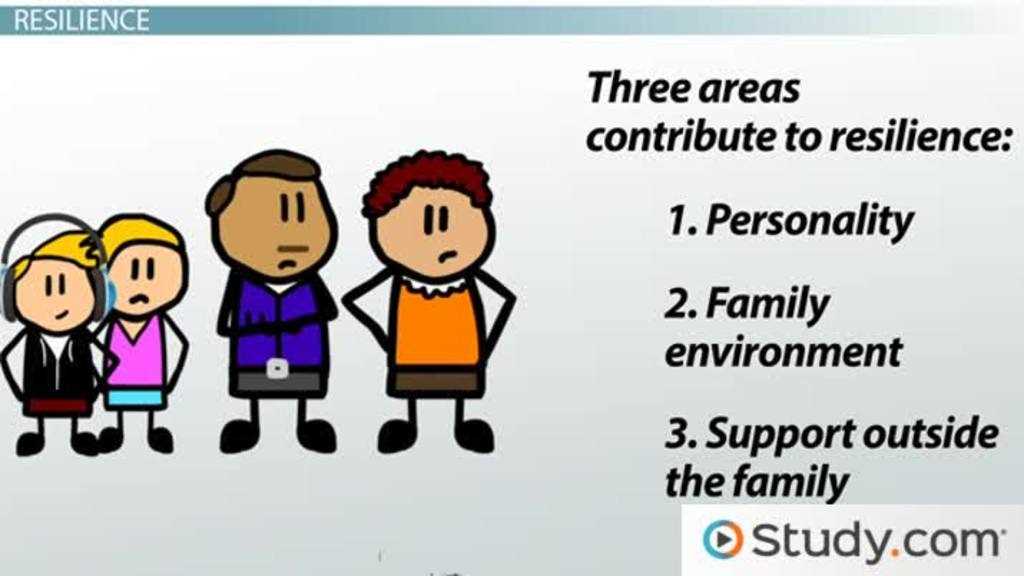
Resilience is a multifaceted concept that encompasses mental, emotional, and physical aspects of an individual’s ability to cope with and adapt to various challenges and pressures. There are several definitions of resilience, each highlighting different aspects of this important trait.
One definition of resilience emphasizes the ability to bounce back from adversity and maintain a sense of well-being. This definition focuses on an individual’s capacity to recover from difficult experiences and continue functioning effectively.
Another definition of resilience emphasizes the ability to adapt to change and navigate through life’s challenges. This definition highlights the importance of flexibility and adaptability in the face of adversity.
Resilience is not simply about being tough or unbreakable. It involves the ability to recognize and process emotions, seek support when needed, and develop effective coping strategies. Resilient individuals are able to manage stress and maintain a positive outlook, even in the face of difficult circumstances.
Building resilience is a lifelong process that involves developing self-awareness, cultivating supportive relationships, and practicing self-care. It is a skill that can be learned and strengthened over time.
In conclusion, resilience encompasses mental, emotional, and physical aspects of an individual’s ability to cope with and adapt to challenges. It involves the ability to bounce back from adversity, adapt to change, and maintain a positive outlook. Developing resilience is a lifelong process that involves self-awareness, supportive relationships, and self-care.
What is Resilience?
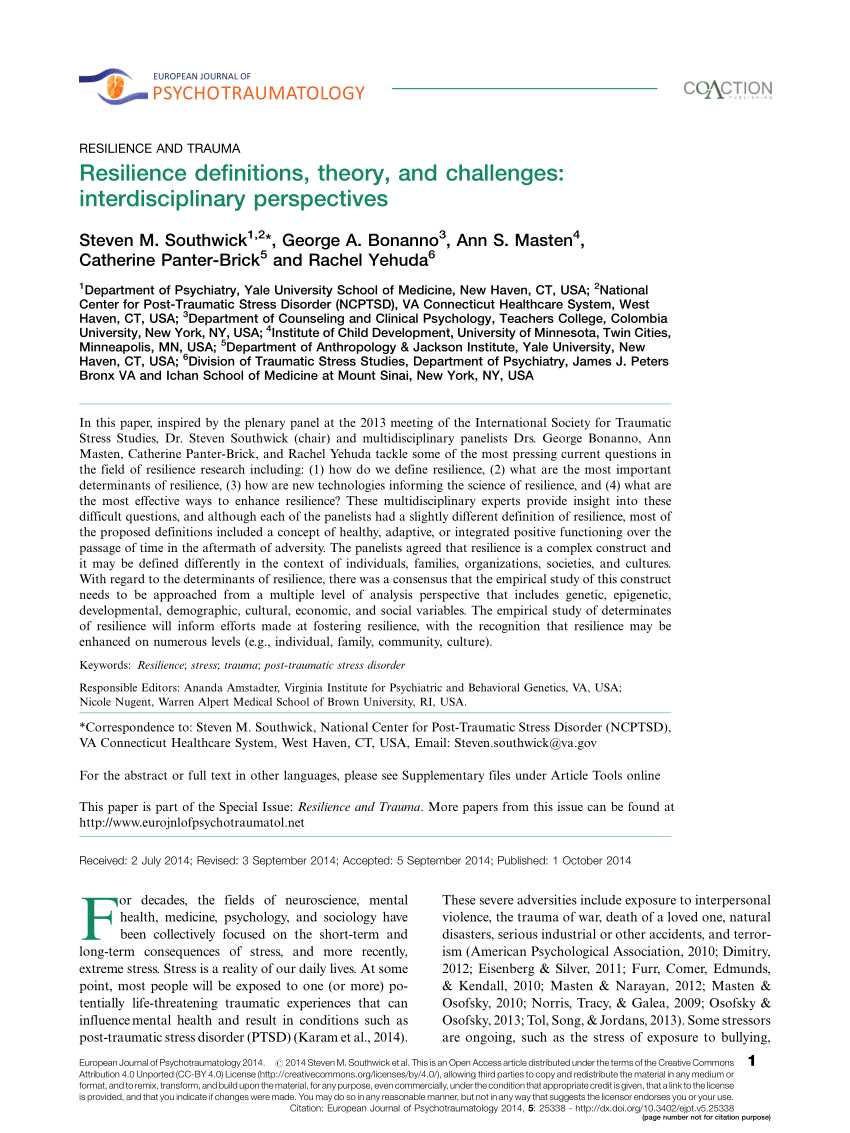
Resilience can be defined as the ability to bounce back and recover from mental, physical, and emotional pressure or adversity. It is the capacity to adapt and cope with stressful situations or challenges.
Resilience is not about avoiding or eliminating stress, but rather about developing the skills and mindset to navigate through difficult times. It involves having a positive attitude, maintaining a strong support system, and being able to find meaning and purpose in life.
Resilience is not a fixed trait, but rather a dynamic process that can be developed and strengthened over time. It is not something that people either have or don’t have, but rather a set of skills and abilities that can be cultivated.
Some key components of resilience include:
- Adaptability: The ability to adjust and change in response to new or challenging situations.
- Coping: The ability to effectively deal with and manage stress and adversity.
- Mental strength: The ability to stay focused, positive, and motivated in the face of difficulties.
- Emotional intelligence: The ability to recognize and understand one’s own emotions and the emotions of others.
Overall, resilience is a valuable trait that can help individuals not only survive but also thrive in the face of adversity. It allows them to bounce back stronger and more capable, enabling them to face future challenges with confidence and resilience.
Factors that Contribute to Resilience
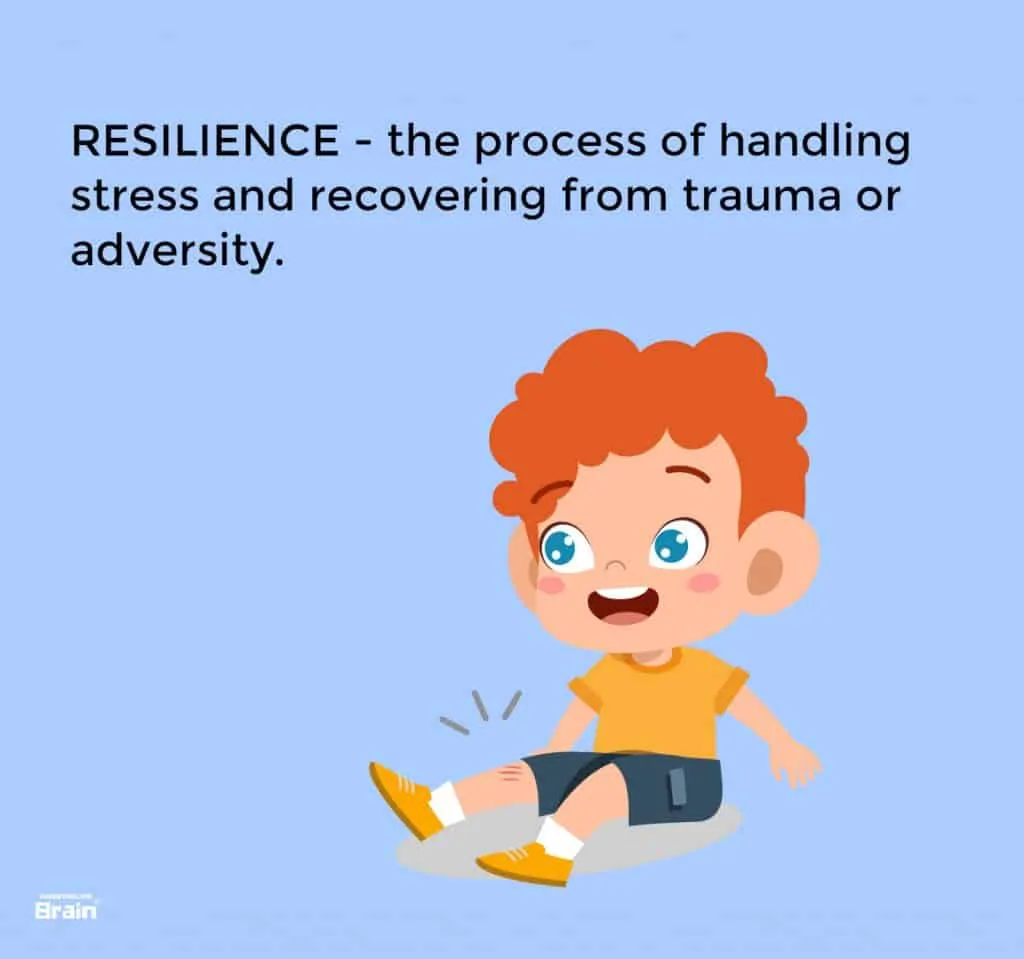
Resilience, the ability to bounce back from adversity, is influenced by various factors. These factors play a crucial role in determining an individual’s ability to cope with stress and adapt to challenging situations.
One important factor that contributes to resilience is physical well-being. Taking care of one’s physical health through regular exercise, proper nutrition, and adequate rest can enhance resilience. When the body is strong and healthy, it is better equipped to handle the physical demands that stress places on it.
Emotional well-being is another factor that influences resilience. Developing emotional intelligence and nurturing positive emotions can help individuals better manage stress and recover from setbacks. Emotional resilience involves the ability to regulate one’s emotions, maintain a positive outlook, and effectively cope with emotional pressure.
Having a strong support system is also crucial for resilience. Social connections and relationships provide emotional support, practical assistance, and a sense of belonging. These connections can help individuals navigate through challenging times and provide a buffer against stress.
Another important factor is adaptability. Resilient individuals are able to adapt to changing circumstances and find effective solutions to problems. They possess the ability to think flexibly, remain open-minded, and adjust their strategies as needed. This adaptability allows them to navigate through stressful situations more effectively.
Effective coping strategies are also key to resilience. Individuals who possess a range of healthy coping mechanisms, such as problem-solving skills, positive self-talk, and relaxation techniques, are better equipped to manage stress and bounce back from adversity. These coping strategies help individuals maintain a sense of control and reduce the negative impact of stress.
In conclusion, resilience is influenced by a combination of physical, emotional, and social factors. Developing and strengthening these factors can enhance an individual’s ability to cope with stress and bounce back from adversity. By focusing on these factors, individuals can cultivate resilience and improve their overall well-being.
Developing Resilience Skills
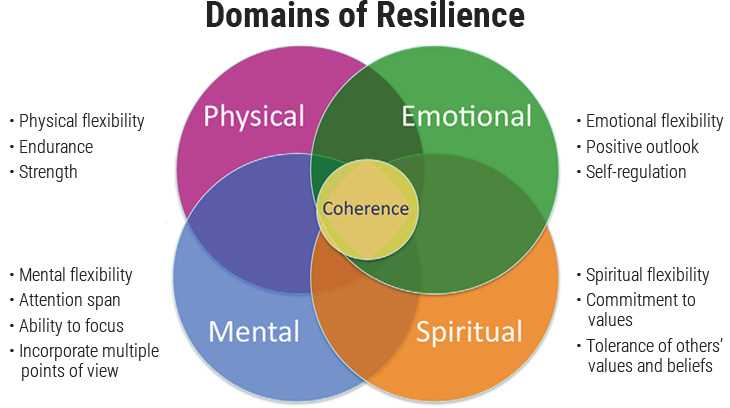
Resilience is the ability to adapt and cope with stress, pressure, and adversity. It involves the emotional, physical, and cognitive resources necessary to bounce back from difficult experiences and maintain well-being. Developing resilience skills is crucial in today’s fast-paced and demanding world.
Resilience skills can be cultivated and strengthened through various strategies. One important aspect is developing emotional resilience, which involves recognizing and managing emotions effectively. This includes building self-awareness, practicing emotional regulation, and seeking support from others when needed.
Another key aspect is building physical resilience. Engaging in regular exercise, maintaining a healthy diet, and getting enough sleep can all contribute to physical well-being and enhance resilience. Taking care of one’s physical health is essential for managing stress and bouncing back from challenges.
Furthermore, developing cognitive resilience involves cultivating a growth mindset and positive thinking. This involves reframing negative thoughts, focusing on strengths and possibilities, and embracing challenges as opportunities for growth. Cognitive resilience allows individuals to approach setbacks with resilience and find creative solutions to problems.
In conclusion, developing resilience skills is crucial in today’s fast-paced and demanding world. By cultivating emotional, physical, and cognitive resilience, individuals can effectively adapt and cope with stress and adversity. Building resilience skills is a lifelong process that requires self-awareness, practice, and support from others.

I am Patrina de Silva, a psychologist and mental health blogger in Sri Lanka. After obtaining psychology degrees from the University of Colombo and Monash University, I returned home to work as a counselor while also starting the popular blog “Pressy but Happy” to provide advice on psychological issues. Over the past decade, my empathetic articles have made my blog a leading mental health resource in the country. In addition to writing, I maintain a private therapy practice, frequently volunteer counseling time, and conduct seminars, driven by my passion for destigmatizing mental illness and educating the public on the mind-body connection. I strive to be an influential voice in my field through my compassionate approach.
